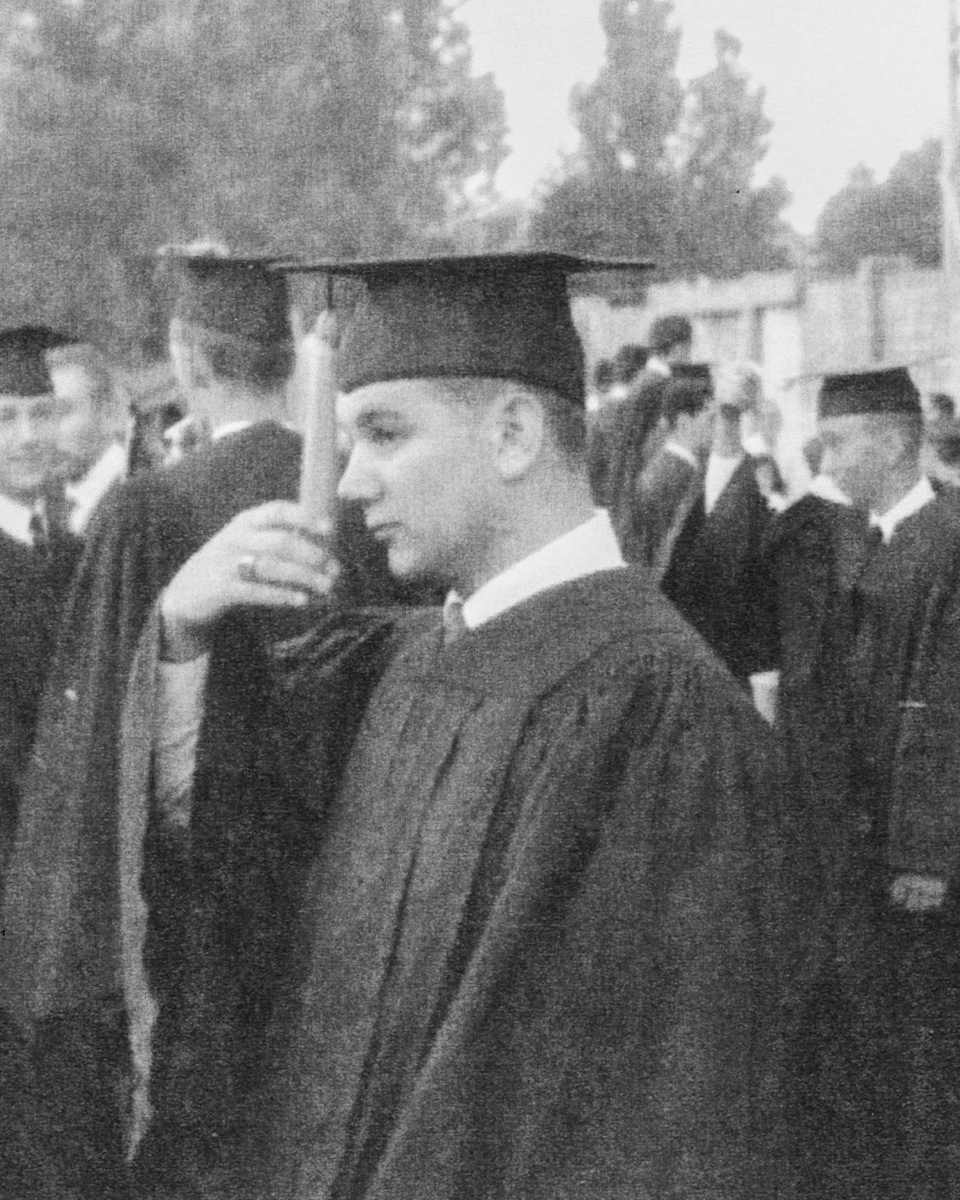Kendall Reinhardt - Quiet Courage at Central High
Birth: Unknown, U.S.A.
Died: Unknown, U.S.A.
Birth: Unknown, U.S.A.
Died: Unknown, U.S.A.
Ken Reinhardt was a white student at Little Rock Central High School in 1957 who chose to treat the Little Rock Nine with kindness and dignity when most others turned their backs.
In the fall of 1957, the eyes of the nation turned to Little Rock, Arkansas. Nine Black students, later known as the “Little Rock Nine,” attempted to attend the all-white Central High School after the Supreme Court ruled segregation in schools unconstitutional. They were met with mobs of angry white protesters, threats, and daily harassment. President Dwight D. Eisenhower sent federal troops to protect them. While soldiers could shield their bodies, nothing could fully protect them from hatred, insults, and isolation inside the school.
Among the 2,000 white students at Central High, only a few showed kindness to the new Black classmates. One of them was Kendall “Ken” Reinhardt. His quiet courage and Christian convictions helped him stand against prejudice, even when it cost him dearly.
Ken grew up in a Christian home in Little Rock. His parents raised him to see all people as valuable, regardless of race. “I didn’t grow up in a home with prejudice,” he later explained. “The value of people was a given.” Although he couldn’t have quoted it at the time, Reinhardt’s beliefs reflected a Bible verse he later loved: “There is neither Jew nor Greek, slave nor free, male nor female, for you are all one in Christ Jesus” (Galatians 3:28).
On his first day of senior year, Ken looked out a classroom window and saw an angry mob jeering at the nine Black teenagers as they entered the school. He immediately decided to treat them with dignity. He spoke to the students in the halls and sat with them in class when others ignored or mocked them. One day, he saw Jefferson Thomas, one of the Nine, sitting alone in the cafeteria and chose to join him.
That act of kindness had consequences. The next day, another white student shoved Reinhardt to the ground, yelling a racial slur. Later, on the last day of school, a classmate punched him in the face during gym class. No teachers or students defended him. Reinhardt’s small acts of friendship cost him socially and physically, but he did not regret them.
Elizabeth Eckford, one of the Little Rock Nine, later recalled how much Reinhardt’s kindness meant. “There were two people in my speech class who treated me like an ordinary person, who were always friendly and cordial to me,” she said. “Ken Reinhardt and Ann Williams in that class are very memorable to me.” For Eckford, who faced daily cruelty and isolation, Reinhardt’s humanity was like a lifeline.
Reinhardt admitted that his relationship with Eckford was not close in the traditional sense. “We were not friends, really,” he said. “We didn’t visit after school. I couldn’t tell you much about our conversations. I just visited with her. I know now that it meant a great deal to her.” His simple decision to acknowledge her gave her strength to endure.
After graduation, Reinhardt went on to a successful career as a banking executive in Louisville, Kentucky. He became a member of St. Matthews Baptist Church and served as a trustee for Kentucky Baptist Homes for Children. Yet he never forgot his senior year at Central High. The experience stayed with him as a powerful reminder of the importance of standing up for what is right.
Decades later, Reinhardt and Eckford were reunited during a National History Day project. Students invited both of them to share their stories. Reinhardt recalled spending “three and a half glorious days” with Eckford, an emotional time that helped both reflect on their shared past.
In the 1970s, Reinhardt faced another test of racial justice when Louisville schools began busing white children to Black schools to promote integration. His own daughter was assigned to be bused. While some parents resisted, Reinhardt and his wife chose to support the decision. Though challenging, it was never as hostile as what he had witnessed in Little Rock.
Ken Reinhardt never sought the spotlight. His acts of kindness may have seemed small at the time, but to the Little Rock Nine, they were powerful. In a school filled with hostility, his willingness to see others as equals made him stand out. Reinhardt’s story reminds us that the greatest courage is often shown not in grand gestures, but in small, steady acts of decency.
References:
“Civil Rights Icons Describe Segregation.” The Connection to Your Community, www.connectionnewspapers.com/news/2002/dec/16/civil-rights-icons-describe-segregation/.
Hixson, Robin. “Reinhardt: A Lesson in Fighting Prejudice.” Fort Scott Tribune, 30 Jan. 2008, www.fstribune.com/story/1307826.html.
Smith, David. “‘little Rock Nine’ Student Recalls Christian Classmate.” Baptist Press, 21 Jan. 1997, www.baptistpress.com/resource-library/news/little-rock-nine-student-recalls-christian-classmate/.
Key words:
Civil Rights, Justice, Conscience, Courage, Freedom, Responsibility, Build Bridges to Unite, Stand Up for Your Beliefs
Image Credit:
Courtesy of Indiana University Archives
Explore ARTEFFECT projects about this Unsung Hero:
Kendall Reinhardt Artworks

